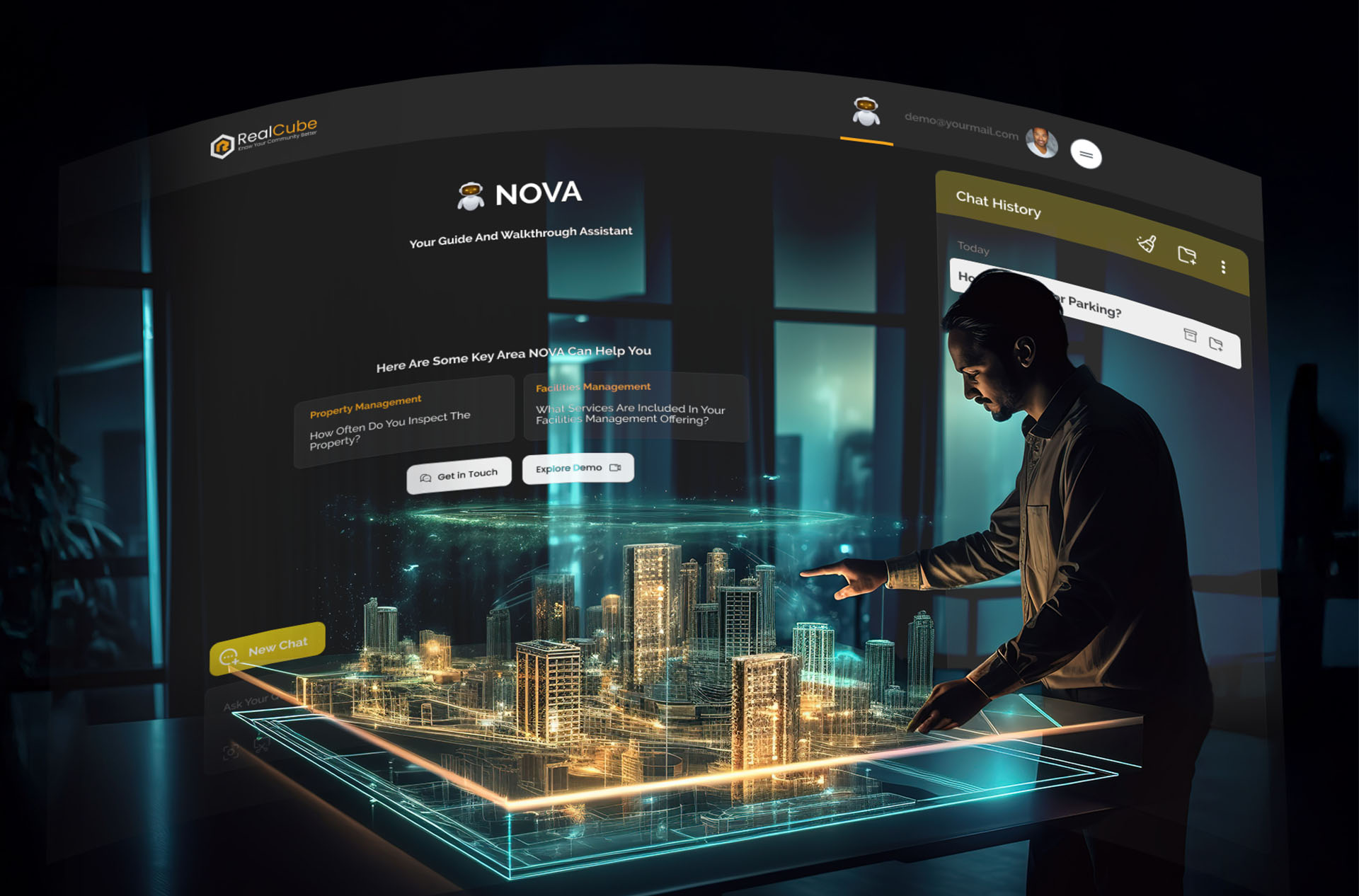


Introduction
In the real estate sector, artificial intelligence (AI) is revolutionizing the field. AI has advanced from theory to real-world application as we move closer to 2025 and beyond, changing the way asset and property managers do their jobs. AI is making businesses more flexible, effective, and tenant-focused by automating tedious tasks and offering real-time insights.
What AI Is Doing Day-to-Day
Why It Matters to Property and Asset Managers
For property managers, AI reduces manual work and enables seamless coordination across leasing, maintenance, and tenant communications. Automated workflows and digital dashboards free up time for strategic planning and customer service.
For asset managers, AI provides deep visibility into property performance, maintenance forecasting, and ROI modeling. It supports proactive asset lifecycle planning and helps reduce operational risks.
AI empowers both roles with data-backed intelligence and faster response mechanisms, leading to increased efficiency, lower costs, and higher asset value.
Real-Life Use Cases of AI in Property Management
AI is already establishing itself in international markets. AI is being used to forecast tenant attrition in major housing communities so that property managers can take early action with lease renewals or loyalty programs. AI systems in smart buildings control lighting, HVAC, and energy consumption, which lowers carbon emissions and saves a lot of money.
In order to reduce delays and increase customer satisfaction, several communities have deployed AI-powered maintenance bots that automatically assign tickets to technicians based on availability, issue severity, and prior performance.
Challenges and Considerations When Implementing AI
While AI offers many benefits, it comes with challenges that must be managed carefully.
Addressing these barriers early ensures smoother adoption and better ROI from AI integration.
The Future of AI in Property Management After 2025
The future of AI in property management in 2025: the journey continues. We can anticipate more innovations in the years to come:
As technology evolves, AI will shift from being a helpful assistant to becoming a core strategic advisor in property decision-making.
Smart Property Management with Real Cube’s AI Engine, NOVA
Real Cube is a modern property management platform designed to make operations smarter, faster, and more connected. At the heart of this platform is NOVA, Real Cube’s proprietary AI engine that brings intelligence to every level of real estate operations.
NOVA enables Real Cube users to manage properties with data-backed precision—from automating maintenance schedules to forecasting asset performance and enhancing tenant engagement. It analyzes real-time data, predicts operational needs, and powers automated workflows that reduce manual tasks and improve service delivery.
Key features of Real Cube powered by NOVA include:
With NOVA at its core, Real Cube helps property and asset managers stay ahead of challenges, boost efficiency, and deliver exceptional tenant experiences—all through a unified, intelligent platform.
Conclusion
AI is no longer a luxury; it’s a necessity in the evolving landscape of property management. For professionals managing real estate assets, embracing AI means unlocking new levels of efficiency, insight, and value. With platforms like Real Cube—powered by its AI engine, NOVA property and asset managers can stay ahead of the curve, delivering smarter operations, better service, and greater returns in 2025 and beyond.

The Digital Shift in Real Estate Strategy The real estate industry is undergoing a profound shift. Traditional…

As property management companies expand into new regions, scaling operations while maintaining efficiency…

Top 2025 Property Tech Trends to Watch 1. Artificial Intelligence (AI) and Machine…

The world of real estate is undergoing a massive transformation, driven by the rise of artificial intelligence…

As cities around the world grow and change to meet new challenges, the "smart city" trend has changed…

In the property management and real estate development space, one overlooked permit, expired document,…

In today’s fast-paced, document-heavy world, effective document management is crucial for any organization,…

Data is one of the most important resources for any business in the modern digital era, particularly…

Property management solutions are now crucial for guaranteeing seamless operations in the real estate…

In the dynamic, fast-paced world of community management, keeping in touch with locals is essential.…